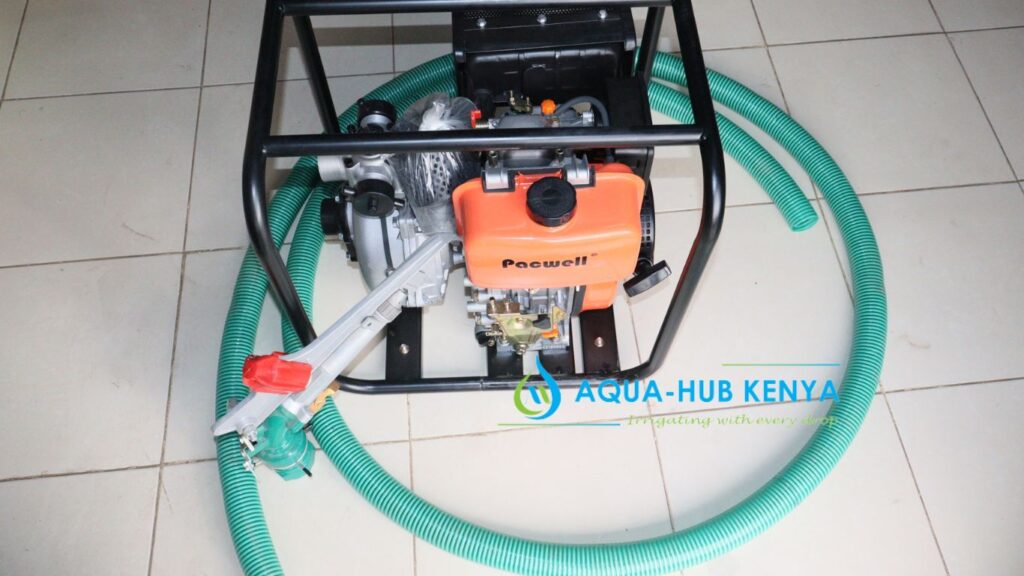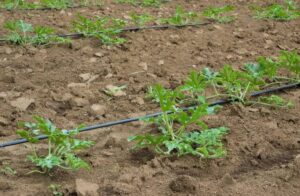Aqua Hub Kenya has variety of water pumps including centrifugal, booster pumps, solar pumps, diesel Pumps and petrol pumps. Our Water pumps in Kenya are affordable and price ranges from KES 15,000 to KES 150,000 depending on the size and specifications.
Why invest in water Pumps
There are several reasons why may need a pump at your home, farm, or ranch. The primary reason is to pump water from one point to another. You require a pump in case of the circumstances below.
- When you want to supply rainwater or dam water to the farm for irrigation or domestic use.
- At times you may need to increase the pressure of water flowing in your domestic supply system. A booster pump is suitable to achieve the desired pressure of flow.
- Incase you want to pump from a borehole to a storage raised tank or directly to the pipe connection.
- You can also want to remove stagnant water from a trench or well. The only method to enhance easier and faster draw is by using a water pump.
How to Choose the Right Water Pump

As easy as it may appear, finding and purchasing a good water pump is tricky. You must consider a lot of factors that are crucial when buying water pumps.
Starting with the right supplier, proceed by observing the pressure rating, flow rate, Suction Head, Pressure Head, and size of the pump.
With a wide range of suppliers in the market, it is easier to fall for lower quality pumps that will cost you money. Consider buying top water pump brands from well known suppliers such as Aqua Hub Kenya.
Flow rate, pressure rating, pressure head and size go in hand to determining the volume of water and the work rate of a pump. Look at our Water Pumps Specifications on the table below.
Work rate demonstrates the amount of time and energy a pump can use to move a certain volume of water in a unit time.
Benefits of Using Water Pumps in Kenya
Water pumps have numerous advantages in various applications it serves in the aquatic and agricultural sector in Kenya. They are:
- Water pumps are efficient in distributing water for long distances. They can supply water for up to 1 km.
- Water pumps are less costly ways to supply water. Most pumps use less energy at a time to move water. For example, petrol pumps use less fuel to pump more water volumes at unit time.
- They save time due to the higher rate of water supply compared to other means of supply such as animal drawn carts.
- Water pumps save on labor costs. Once you purchase them you only pay fuel or electricity bills.
- Solar pumps can use free solar energy to supply water from wells, boreholes, and dams thus economical.
- Pumps have a wide range of uses from domestic to industrial, agricultural and aquatic fields.
- They are available in many categories, flow rates, pressure rating variations and size ranges you can choose from.
- Water pumps are easier to operate. No technical skills are required to use them and it easy to read user manual or guide.
Applications of Water Pumps in Kenya
- Applicable in industries for pumping fluids and chemicals
- Domestic supply of water from tanks to water plumbing systems.
- Drawing water from boreholes to storage tanks.
- Supply from rivers in remote areas for irrigation and animal use
- Boosting the pressure of water in a supply system such as lawn sprinklers

- Applicable in car washes
- Mining industries for suppression of dust.
How to Maintain Water Pumps
To ensure your pump remains operational and in good condition for a long time, you should.
- Regularly clean the pump casing and other parts with the required fluid.
- Cover the fuel tank lid in case of fuel pumps.
- Always use the recommended fuel or energy source.
- Monitor the pump regularly for leaks and damaged parts before use.
- Replace worn out parts and lubricate any moving parts or joints.
Frequently Asked Questions
Aqua-Hub Kenya
It may range from KES 15,000 – 100,000.
Monitor the pump on a regular basis for leaks, corrosion, and worn-out parts. Replace any faulty parts. Use the recommended source of power for instance, right fuel type or exact voltage supply needed.
Supplying water for domestic use, irrigation, and industrial pumping of fluids to various areas.
Consider the pressure rating, flow rate, pressure Head, size and suction head of the pump. You also need to decide on the power source and consumption it requires and the cost price.





